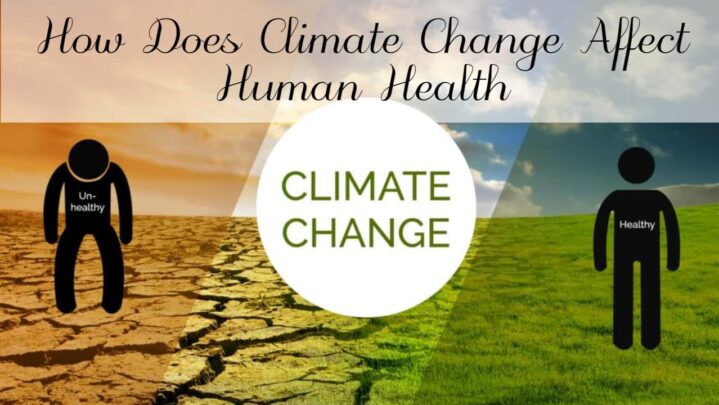Our health, happiness, and safety will be significantly impacted by these changes.
Increased air and sea temperatures, altered rainfall patterns, regular and more intense extreme weather events, and sea level rise are all consequences of climate change.
Extreme weather events, declining air quality, shifts in the transmission of infectious illnesses, challenges to food and water supplies, and effects on our mental health are just a few ways that climate change may have an impact on our health and well-being.
There are things we can all do right now to increase our ability to withstand the consequences of climate change and contribute to the environment.
Increases in the atmospheric concentration of greenhouse gasses (such as carbon dioxide, methane, and nitrous oxide) that raise the earth’s average temperature are the primary causes of climate change.
Temperatures of the air and the ocean rise as a result of greenhouse gas entrapment. They are primarily created by the burning of fossil fuels (like coal) for the production of power, along with operations in agriculture, mining, land management, and transportation.
Children are at risk for a number of things. Children, for instance, are more prone to heat exhaustion, dehydration, and air pollution as well as being more sensitive to smoke from wildfires. They are more susceptible to illnesses because their immune systems have not fully matured. Kids frequently depend on people to keep them safe when assisting people in times of need and to aid in their recovery.
Because of the physiological demands of pregnancy, pregnant women are more likely to experience heat stress during heat waves. They are extremely susceptible to air pollution and smoke from bushfires, as well as their unborn children.
Dehydration, heat stress, infections, and an aggravation of heart and lung disease are more common in older adults and those who already have a medical problem.





